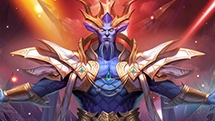By Joshua Temblett (Dontkillmydreams), Onrpg writer
MMORPGs need to change. That’s a well known fact. The question is, how do they change? The MMO is a great genre, as it doesn’t require any real skill with a keyboard and mouse but rather focuses more on tactical planning which makes it a great genre for people who are either really lazy or just in need of some relaxing, whilst playing a game of course. There are so many different directions the genre could go though, some of which developers may not have even thought about, and when the online RPG market is as cramped as it is, one needs to consider another way of approaching the existing market and reeling in new consumers.
1) Don’t block out the console gamers.
Console gaming is certainly on the rise, why block out that market? It’s true that nearly everyone in the modern world owns a PC; however why bother trying to get into a market that is so ambushed with the same type of game? Let’s just face it right now; World of Warcraft owns the market. There’s no point in denying that. So then why try to make a game similar to WoW? You’re not going to get anywhere near as many subscribers as the game dominating the market as it’s not only brilliantly designed but also very well managed and made. Unless you have a new idea (that works) you’re not going to get anywhere. This is where the console market comes in.
You don’t have to stick to point and click gameplay on consoles, and this is the beauty of them! I still can’t understand why no developer has tried to make a game with a similar control scheme to “The Legend of Zelda”, especially considering that it’s slow enough to not turn battles into button bashers, but fast enough to retain a good pace. Not only that, but there is a certain skill element required too. Console games cannot stick to the same design roots as PC games though (especially with a different control scheme), and this is where my second point comes in!
2) Don’t stick with the same old design.
Let’s assume for a minute that you’re making a game for a console, the way you design that game would have to be different from how you would make a PC MMO. That’s not only because of the control scheme available, but also playing on a console is a completely different experience. Final Fantasy XII (an MMO-styled RPG) is completely different to Guild Wars in terms of environment and general design. What about if you’re not making a game for a console but rather a PC? Don’t stick to the same old methods, move outside of the already tried and tested formula, create a game that plays differently and gives a new experience. There’s nothing stopping designers from mixing and matching genres. MMOFPS anyone?
3) Big games use the F2P scheme!
I mean seriously, why not? The economic climate is attacking us all; we don’t have the money to pay to play games every month! F2P games with an online market place opens up your title to more gamers, but at the same time if you put cool items and whatnot on that market place, players will no doubt buy them. But for God’s sake developers, let people buy items from your store using Paypal! Lots of people use it, it makes them feel safe with what they’re purchasing and that some random company isn’t going to take all their details.
4) Listen to your community.
The community play the game and know more about the game than the developers do, so why not listen to them? They’re the experts! If a marketing expert tells you what to do, you’re going to believe him and do what they say, so why not do the same with your audience? Also report to your community about your developments with the game and get their opinions on new features you’re adding or game balancing. I remember when I was part of the Wizard 101 Closed (and Open) Beta the developers would always report to the community about their current doings and this created a close community and a very good game.
To be honest, listening to your community is the best thing a developer can do to not only improve games but also to create new and exciting experiences and games within the genre.



